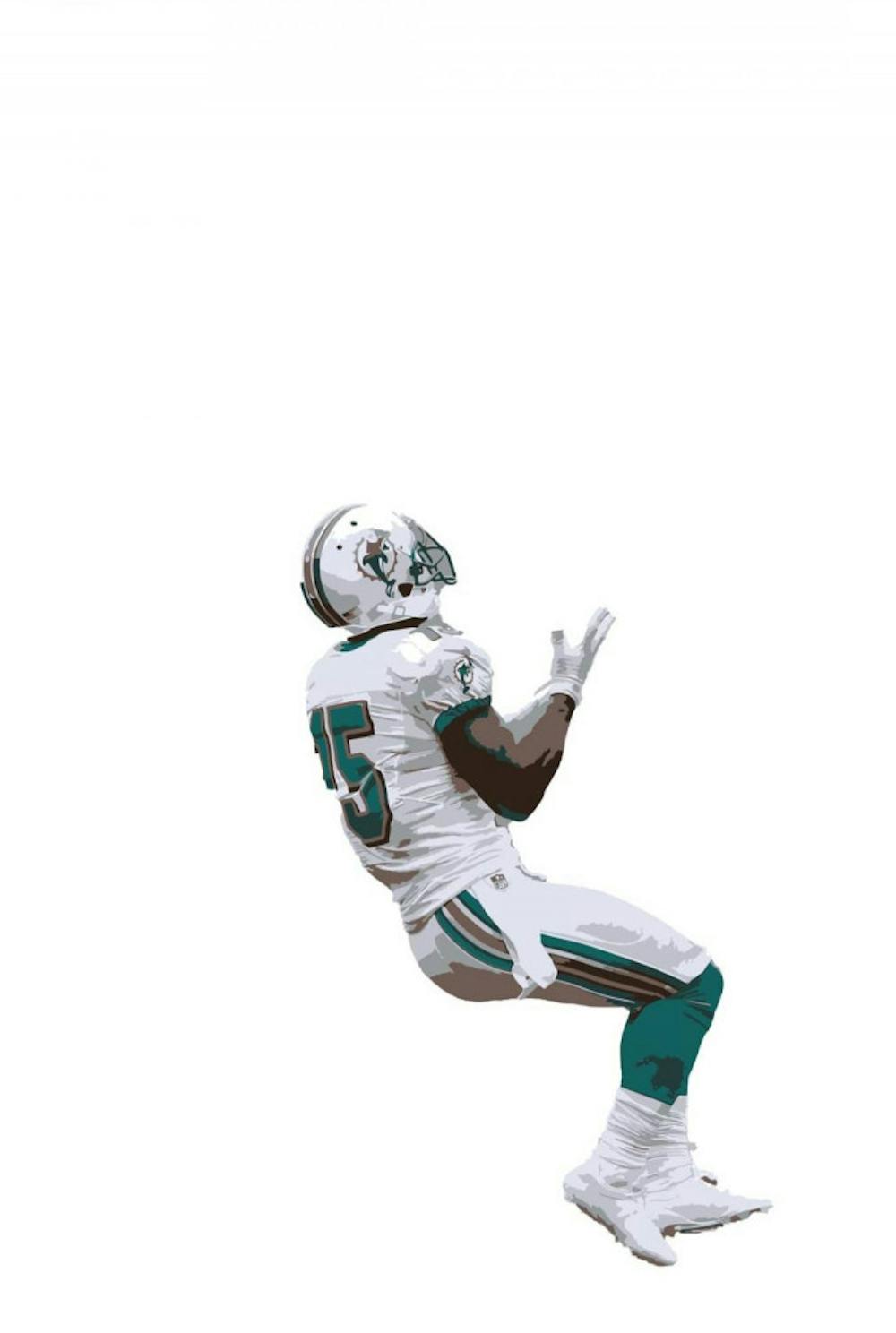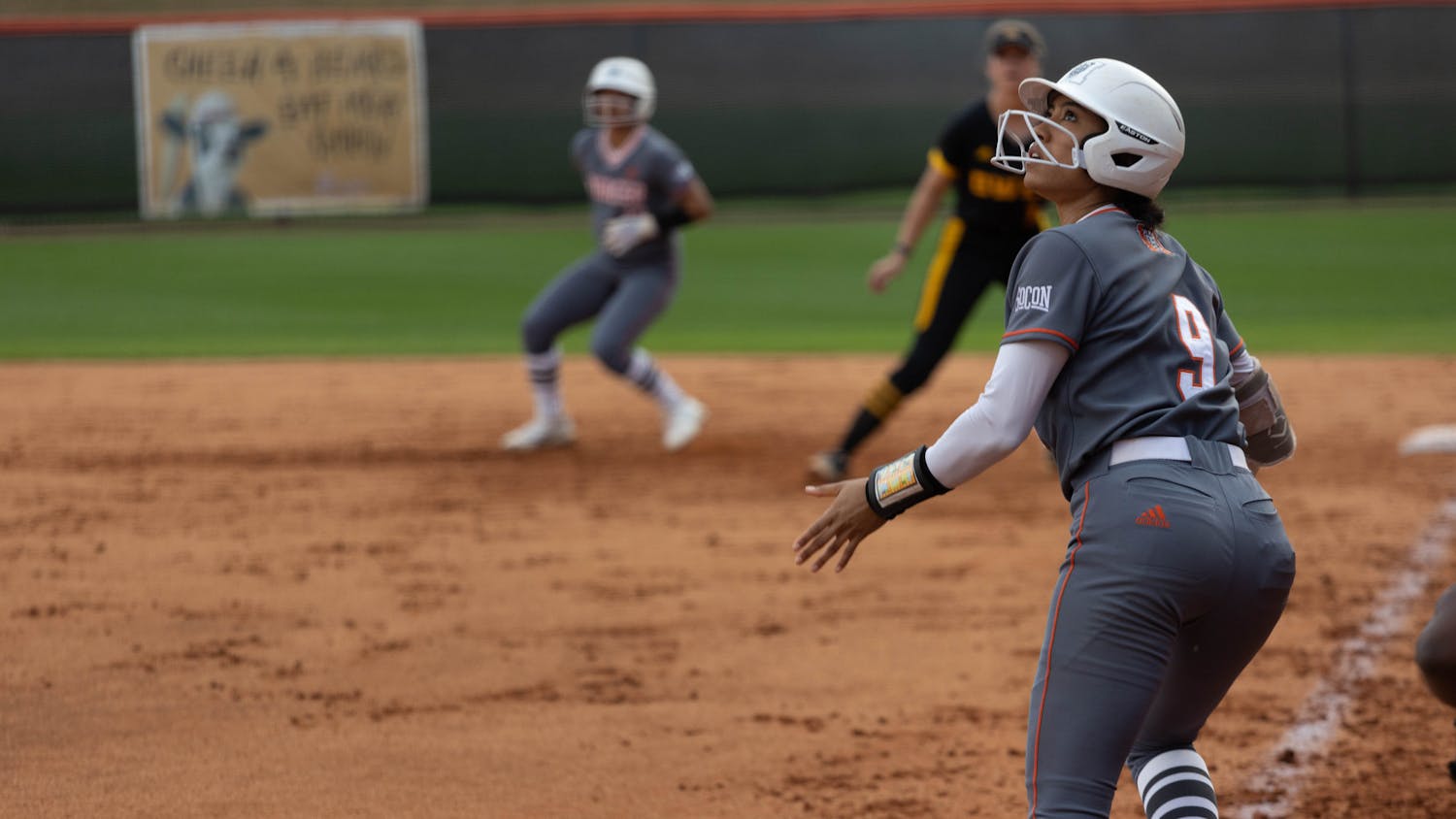The wind blows popcorn and hot dog wrappers across empty seats. Occasional shouts and boos echo against the vacant concrete of the upper decks of Hard Rock Stadium. Despair-ridden calls of “ice-cold beer” float across fall breezes to the ears of the few that remain. No, this is not a sports purgatory.
This is Miami Dolphins football in 2019.
The NFL team that resides in South Beach is setting unbelievably high expectations for ineptitude so far this season, having been outscored by a margin of 211-63 at the hands of their opponents going into Week 7 of the season, according to ESPN. The team had not scored any points in the second half until Week 5 against the abysmal Washington Redskins. Regardless of the lopsided scores and dwindling attendance, the question remains: Why is Miami so bad?
The answer lies in one colloquial term that has become known to masses of football fans not only in Miami but around the country as “tanking.”
When a football team “tanks,” it means that the owner has fully embraced the lack of talent on the team roster and accepts the fate of falling far out of the playoff picture. These teams, ones which usually linger in the limbo of mediocrity for a few seasons, eventually purposefully do the opposite of what a successful team does in the NFL: they lose games.
The Miami Dolphins fit the mold of a tank team perfectly: over the past decade, they have only had one winning season — 2016 — and have only made the playoffs once — also 2016 — according to ESPN. That lone 10-6 season with a postseason berth was a short-lived success, however, as it only resulted in a 32-12 drubbing at the hands of the Pittsburgh Steelers in the Wild Card.
The Dolphins spent the remainder of those 10 seasons as a middling and even occasionally awful team, finishing with eight losing seasons, as well as one season at .500 in 2014. The team has used a variety of quarterbacks, but none of them have stuck long enough to provide reliability at the position. The defense can show signs of steadiness but regularly reverts to being a revolving door for opposing offenses.
After years of this infuriating inconsistency and mediocrity, though, the Dolphins are now doing what some fans have been calling for after some time. But why tank now in Miami?
The answers are simple: the team is incredibly weak, and the 2020 draft class is incredibly strong. Miami started off the year with two abysmal losses to Baltimore and New England, and it became clear that the team would not show any competitiveness this season, so ownership made a simple and effective decision to blow up the few remaining assets they had.
Star running back Kenyan Drake? Traded. Defensive powerhouse Minkah Fitzpatrick? Traded. Offensive blocking machine Laremy Tunsil? Traded. Receiver Kenny Stills and linebacker Kiko Alonso were also dealt to other teams. The Dolphins’ roster was not this empty at the beginning of the season, the team has simply shipped off its stars in exchange for one thing: draft picks. These transactions all occurred within the span of the past 2 months in Miami.
This is where the “tank” comes into play: by losing tons of games now, the Dolphins position themselves to obtain countless talented players in the 2020 NFL Draft. These trades open up even more opportunities to acquire picks for players that will not help them win games now. Miami has already stacked up 13 draft picks in the 2020 Draft, three of which are first-round picks according to ESPN’s Cameron Wolfe.
If Miami continues to lose, they will almost certainly be granted the #1 overall pick of the draft, which would likely be used to draft dynamic University of Alabama quarterback Tua Tagovailoa. The momentum of a new and very talented quarterback could propel the team to new heights, especially when paired with other talents from what looks to be a very strong draft class.
Amidst the awful team on the field and the increasingly strong incoming talent, the questions about Miami’s strategy this season are still important ones to ask. Is this good for the NFL? How many teams will follow suit?
Regardless of the average fan’s opinion on them, the Miami Dolphins are an awful team, and it seems that they like it that way.
Micah Johnston ‘22 is a journalism and media studies double major who has written for The Cluster since his freshman year at Mercer. He has written on and reported for Georgia Public Broadcasting, The Macon Telegraph and The Macon Newsroom on a variety of topics. He received the Center for Collaborative Journalism’s Junior Honors Award for the 2020-2021 academic year. Micah’s other interests include obsessively following Braves and Mariners baseball, constantly listening to all kinds of music and probably eating junk food.





